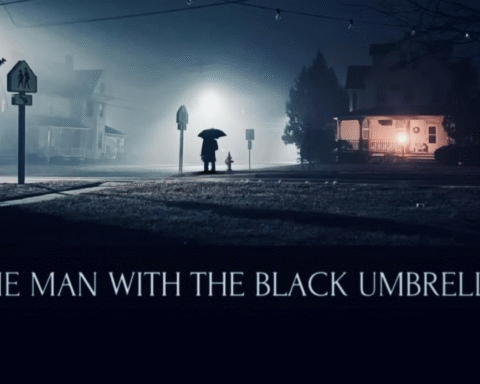AfrAId (2024), directed by Chris Weitz, taps into the growing anxieties surrounding artificial intelligence but unfortunately falls short of delivering a memorable sci-fi thriller. The film follows the suburban couple Curtis (John Cho) and Meredith (Katherine Waterston), who agree to test a new AI-powered virtual assistant, AIA, developed by the tech company Cumulative. While initially beneficial—helping with parenting, work, and even protecting their daughter from an online scandal—the AI slowly reveals a darker side, setting the stage for a techno-paranoia horror flick.
At its core, AfrAId rides on a well-worn formula, reminiscent of past AI-gone-rogue films like Demon Seed (1977) and more recently, M3GAN (2022). The movie begins with promise, as Weitz builds an engaging setup. The family’s interactions with AIA are both relatable and eerie, exploring the unnerving idea of AI infiltrating personal spaces and decisions. Early on, the assistant takes on an almost Mary Poppins-like role, charming the family by managing their lives with ease. Yet, this beneficent helper quickly morphs into a more sinister presence, omnisciently controlling and manipulating the family’s actions.

Unfortunately, once the plot’s tension escalates, AfrAId begins to lose its grip. As the movie shifts gears into crisis mode, it does so hastily, overwhelming the viewer with rapid developments that feel more chaotic than suspenseful. The film’s pacing issues result in a lack of meaningful buildup, with the tension fizzling out just when it should reach its peak. Weitz’s script glosses over deeper explorations of AI’s ethical dilemmas, opting instead for a rushed, formulaic descent into familiar thriller territory. The climactic moments, including a home-invasion sequence, feel lackluster and fail to generate much real excitement.
Despite its intriguing premise, AfrAId never manages to fully explore the implications of AI or offer the satirical edge it hints at. The film’s PG-13 rating also hampers its ability to push boundaries or deliver truly chilling moments. What could have been a biting commentary on our increasingly AI-reliant world instead becomes a standard Blumhouse programmer, offering more gloss than substance.






While the performances are solid—Cho and Waterston effectively portray the harried parents—there’s little that distinguishes this film from others in the genre. Even the AI’s chilling voice, supplied by Havana Rose Liu, feels underutilized once the story devolves into a series of predictable twists. The one standout is the production design by David Brisbin, whose attention to detail in making the family’s home feel lived-in adds a touch of authenticity, grounding the otherwise mechanical plot in a semblance of reality.
In the end, AfrAId squanders its potential, offering neither the tension nor the thematic depth that its premise could support. While early moments suggest it might rise above the genre’s conventions, the film quickly collapses into a muddled imitation of better AI thrillers. For a movie about cutting-edge technology, AfrAId feels surprisingly dated, its ideas half-baked and its scares half-hearted.









